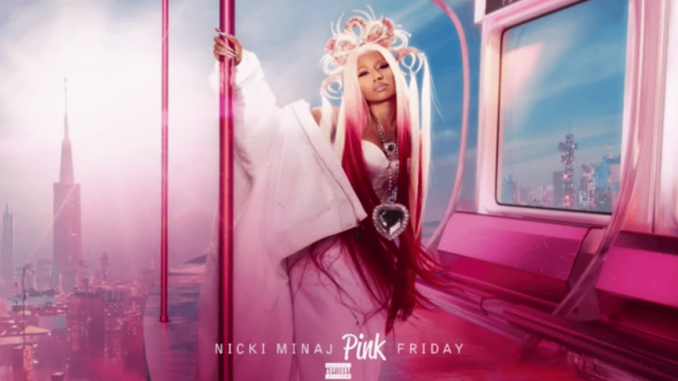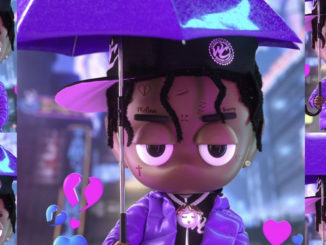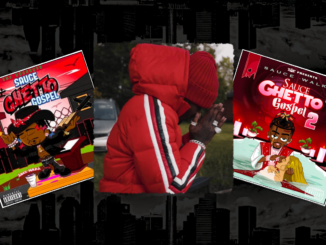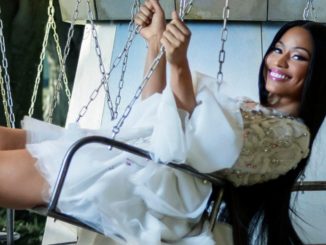
Hip Hop won’t allow it. The genre that once influenced my fashion choices, mindset, and even life aspirations since a jit has reached 50 years old and its offspring have made it nearly impossible to take it seriously. Instead, the music that thrives on the rhythm of a heartbeat, also known as bass, has unequivocally dehumanized its gifted orators, causing the downfall of more Masters of Ceremonies (MCs) and associated counterparts than one can count.
Similar to an episode of The Twilight Zone, these rappers are caged birds barricaded by the desperate necessity to feed their families and the expectations of an insatiable audience, who ironically are just as broken as the artists they idolize. With the exception of a few, it seems an unlikely scenario for rappers to live out successful, long-lasting careers in comparison to their peers in other genres. If it’s not death by bullet or poison (drugs or otherwise), then it’s the vicious assassination of character and legacy through the court of uninformed public opinion. Who wants to be famous anymore? Sadly, social media answers that question.
No one will admit the degenerate nature of the current music landscape without consequence. Be brave enough to criticize any aspect, what follows is an onslaught of narratives based in ageism, sexism, racism, and any other “ISM” you can conjure up. One common retort is that Hip Hop has always been promiscuous and vulgar, since the days of Uncle Luke, Too Short, and the like. There’s no denying that, and many of the rappers championing ratchet and sexually deviant culture were men who are probably more tight-lipped than ever given the times when some pretty iconic male entertainers have faced serious, career-ending allegations.
THROW IT BACK ARTICLE: Review: Hip Hop Is On Life Support, Is Kendrick Lamar’s ‘Mr. Morale & The Big Steppers’ Enough To Save The Genre?
Women are not exempt from this conversation. Ill-advised female rappers have played their part in mislabeling dangerous rhetoric as female empowerment. Salt-N-Pepa unraveling the taboo of discussing responsible sexual behavior is a far stretch from rappers who shall remain nameless bragging about unprotected sex and prostitution for purses. How did I get here?
What I really came to talk about was the release of Nicki Minaj’s Pink Friday 2. Before you start calling me a hypocrite, Minaj did something particularly unique for a female rapper in 2023 on her 22-track album. In a world where Hip Hop won’t allow its followers to let their guards down and put the real business on the floor without repercussion, Minaj has managed to bring back that essence in one single song. “Blessings,” featuring gospel star Tasha Cobbs Leonard, offers up a side of Minaj we haven’t seen since The Pinkprint’s “The Crying Game” released back in 2014 or Pink Friday’s “Moment 4 Life,” featuring Drake, and “Fly,” featuring Rihanna, released in 2010.
In “Blessings,” Minaj unveils a sliver of her spiritual foundation when she raps, “When I was five, I’d get down on my knees and pray to you / I found my reason, your presence, I put my faith in you / I saw the blessings come down when I started praising you.”
The addition of Cobbs Leonard’s powerhouse singing further contributes to the significance of the melodic track. Hip Hop won’t allow it, but gospel, pop, and R&B will. On “Blessings,” and Pink Friday 2 as a whole, Minaj disrupts the toxic inertia of a genre on its death bed with vulnerable lyrics and self-aware admissions. These are the very elements that made listeners fall in love with Hip Hop via songs such as Grandmaster Flash & The Furious Five’s “The Message” (1982), Tupac’s “So Many Tears” (1995), Kanye’s “Jesus Walks” (2004), and XXXTentacion’s “Jocelyn Flores” (2017), for instance.
It’s what’s missing in Hip Hop, overridden by the mentally exhausting robotic machine that continuously churns out shock value TikTok numbers while neglecting the very humanistic needs of its listeners. Where, o where, Hip Hop, is thou balance?
Minaj serves that balance, whether it be on the primer track “Are You Gone Already” (where she solemnly reflects on a personal loss), follow-ups “Barbie Dangerous” and “FTCU” (solid bar-for-bar rap entries), the J. Cole-assisted “Let Me Calm Down” (the self-aware rap and R&B hybrid about relationships), or “Everybody” with Lil Uzi Vert (a sample-laced, dance track reminiscent of Uzi’s hit “Just Wanna Rock”), to name a few.
Pink Friday 2 has its moments of sexual explicitness — no one said Hip Hop has to be a saint. The point is that Hip Hop should be allowed to grow up and expand beyond the warped perimeters set by agents of chaos that benefit from the tired stereotypes of the genre. Minaj’s courage to release a well-rounded project amid the possibility of not fitting into the current themes of Hip Hop’s femcees where it’s more about sex than rap skills is exemplary of her growth and why, over a decade in, she’s still considered one of the Queens of Rap.



